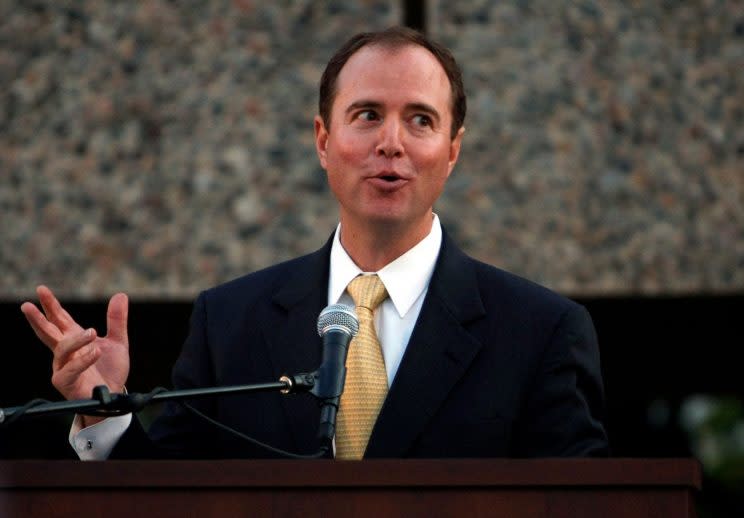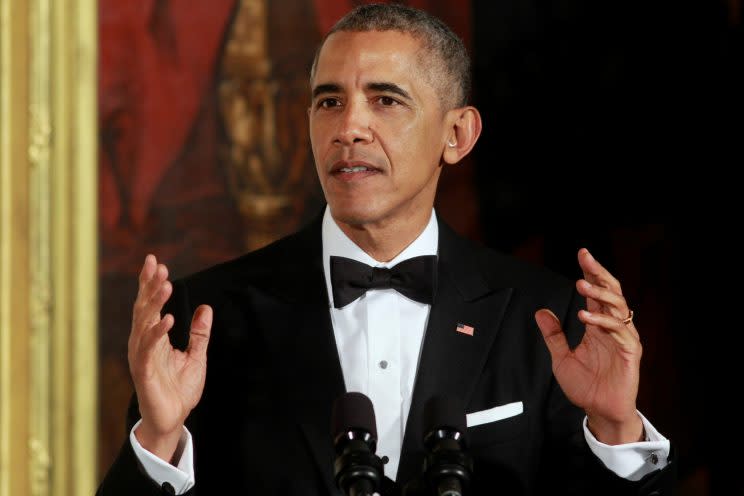Top Democrat: Obama may make torture report partly public

Rep. Adam Schiff, the top Democrat on the House Intelligence Committee, said Tuesday that President Obama could make a Senate report on the CIA’s post-9/11 use of torture partly public before he leaves office in January.
Because it was created by Congress, the document is not currently subject to the Freedom of Information Act (FOIA). But some transparency advocates have suggested that it could be used by federal agencies in a way that subjects it to that disclosure law.
“Probably the most that we might expect this administration to do — and maybe ‘expect’ is the wrong word — but the most it could probably accomplish is to designate it some kind of a record that would ultimately lead to its availability through FOIA, subject to redaction, obviously,” said Schiff, who was speaking at a breakfast for reporters organized by the Christian Science Monitor.
Yahoo News reported in May that the CIA inspector general’s office — the spy agency’s internal watchdog — had acknowledged it “mistakenly” destroyed its only copy of the Senate torture report. While the agency says it still possesses a copy on a disk in a vault, transparency advocates worry that the full report may never be public, perhaps not even preserved.
The Senate Intelligence Committee worked for years to compile the 6,700-page report, perhaps the most detailed and complete accounting of the CIA’s use of waterboarding, sleep deprivation and other interrogation techniques that meet international definitions of torture. It includes original CIA cables and memos on the use of those methods at secret “black site” prisons overseas in the aftermath of the Sept. 11 terror attacks. In December 2014, Democratic Sen. Dianne Feinstein, the committee’s outgoing chair, released a 500-page executive summary. It said that CIA interrogations after 9/11 were considerably more brutal than the agency has publicly acknowledged, and that the methods produced intelligence that often proved unreliable. The findings drew sharp dissents from the panels Republicans, who argued that the techniques were lawful and effective. Four former CIA directors also argued that the report distorted reality.
It’s not clear what Obama will do. The outgoing president in 2009 released legal memos drafted by the Bush administration to justify the use of what it described as “enhanced interrogation techniques.” But Obama declined to prosecute anyone involved.

Donald Trump’s election has lent the debate fresh urgency. The president-elect has repeatedly promised to resume using torture, saying he will “bring back a hell of a lot worse than waterboarding.” And his pick to be CIA director, Rep. Mike Pompeo, R-Kan., has defended the use of such tactics and objected to making the torture report executive summary public.
“I don’t think the incoming administration will have any interest in publishing any greater part of the document,” Schiff said Tuesday.
“I do think it’s very important that that information be shared as much as possible, particularly when so many people around the incoming administration, within the incoming administration, speak openly about reintroducing the idea of torture, or waterboarding or enhanced interrogation,” Schiff said.
But, the California lawmaker added, returning to torture “is never going to happen” — even under Trump.
“It doesn’t matter what the president-elect thinks, it doesn’t matter what his team thinks,” Schiff said. “Within the IC [intelligence community], there would be such massive resistance to this, it just isn’t going to happen.”
Anyone Trump orders to use such techniques should quit, the lawmaker said.
“My recommendation to anyone in the IC that’s asked to do this again: They ought to resign before they do it,” Schiff said. “And I think that will be the sentiment within the military.”
Schiff praised retired Gen. James Mattis, whom Trump has picked to be defense secretary, citing “his willingness to confront the president-elect and tell him that this is a bad idea.” In a New York Times interview last month, Trump said he had discussed the effectiveness of waterboarding with Mattis.

 Yahoo Sport
Yahoo Sport 







































